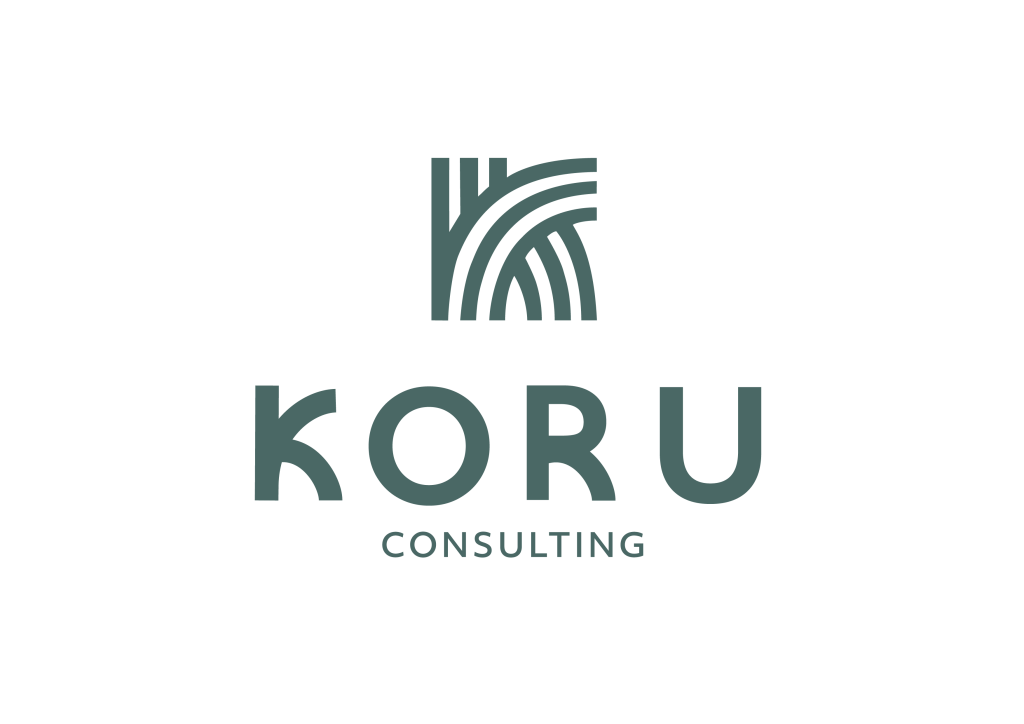Partnership Policy KORU Consulting bv
as per 2025-02-01
1.Introduction
The world faces the urgent challenge of decoupling economic growth from the depletion of natural resources and social inequality. The circular economy offers a pathway in which value chains are restructured: materials and products retain their value, while the people who work in these chains benefit from fair and safe conditions.
KORU seeks to contribute by acting as a network organisation that supports and accelerates international collaborations. We do this by connecting knowledge, facilitating partnerships, and expanding collective capacity.
Our symbol is the lighthouse: a beacon of hope, visible and vulnerable, standing firm while guiding others to safety. Like a lighthouse, KORU aims to provide direction and light in the complexity of global transitions—helpful, clear, and resilient in the face of challenges.
This policy document defines the principles and foundations that guide all our collaborations. It serves as a public reference point and as a framework for agreements that can be further specified in contracts with our partners.

2.Our core values
Our work is anchored in three values that are simple but powerful: Clarity, Commitment, and Collaboration.
Clarity
Clarity is the foundation of trust. We operate with transparent agreements, honest communication, and open dialogue about dilemmas. For us, clarity means:
- Being explicit about expectations at the start of each collaboration.
- Communicating openly about both opportunities and risks.
- Making decisions and reasoning transparent, even when they involve complexity or uncertainty.
Commitment
Commitment reflects responsibility for ecological and social impact. For KORU, it means aligning with international standards while taking practical action to build a circular and fair economy. Our commitment is expressed through:
- Proactively embedding sustainability considerations in all projects.
- Standing by our principles, even when short-term gains may conflict with long-term responsibility.
- Engaging with partners who share our ambition for systemic change.
Collaboration
Collaboration is at the heart of transitions. We recognise that no single actor—whether government, business, or civil society—can achieve systemic change alone. Collaboration for us means:
- Working on the basis of equality and mutual respect.
- Valuing diverse perspectives and disciplines.
- Building long-term relationships that outlast individual projects.
3. Normative Framework and Principles
KORU’s way of working is firmly grounded in international standards:
- OECD Guidelines for Multinational Enterprises: These guidelines provide a global benchmark for responsible business conduct in areas such as human rights, environment, corruption prevention, and consumer interests.
- UN Guiding Principles on Business and Human Rights (UNGPs): These principles articulate the responsibility of businesses to respect human rights and provide remedies for adverse impacts.
- Circular Economy Frameworks: We align with European and international strategies that emphasise waste prevention, reuse, repair, recycling, and value retention.
Translating Principles into Practice
At KORU, we translate these frameworks into action by:
- Promoting circular design and business models in international projects.
- Stimulating transparency across global supply chains.
- Supporting fair participation of local communities in value creation.
- Encouraging innovation that reduces ecological footprint while strengthening social equity.
By grounding our work in these frameworks, we ensure that circularity is not only about resource efficiency but also about justice and responsibility.
4. Responsible Business Conduct (RBC) and Integrity
Behavioural Principles
We hold ourselves and our partners to high standards of conduct:
- Acting honestly and with integrity.
- Rejecting corruption, bribery, and conflicts of interest.
- Treating all people with dignity and respect, without discrimination.
Human Rights and Working Conditions
- We respect internationally recognised human rights.
- We reject all forms of child labour, forced labour, or unsafe working conditions.
- We actively promote gender equality, inclusivity, and diversity within value chains.
- We encourage partners to adopt policies and practices that protect workers’ rights.
Ecological Responsibility
- We seek to minimise negative ecological impacts in every collaboration.
- We aim to enhance circular value creation: extending product lifecycles, designing for reuse, and supporting closed-loop systems.
- We encourage solutions that protect ecosystems, biodiversity, and climate stability.
Integrity Policy
Integrity at KORU means consistent alignment between words and actions. It includes:
- Open and transparent communication with partners.
- Accountability for our choices and commitments.
- A culture of mutual accountability: we invite partners to hold us to our
values, just as we do with them.
5. Framework for Collaboration
Internal Partners (freelancers, associates)
We expand our capacity by engaging independent professionals who complement our expertise. These partners:
- Are selected not only for their technical expertise but also for alignment with our values.
- Commit to this policy document, with additional contractual provisions where relevant.
- Represent KORU in dealings with third parties and are expected to act accordingly.
External Partners (corporates, universities, financiers)
Our collaborations with larger organisations and institutions are based on shared principles and clear agreements:
- We invite all partners to endorse this document as a foundation for collaboration.
- Contractual agreements specify responsibilities, deliverables, and adherence to standards.
- We expect partners to maintain transparency regarding their own due diligence processes.
Escalation and Accountability
- Concerns or dilemmas are addressed through dialogue first.
- If necessary, independent assessments or audits can be commissioned.
- Our approach is constructive: focused on learning, improvement, and shared responsibility.
6. The Role of KORU as Facilitator and Connector
KORU does not act as a traditional supervisory authority but ensures the quality of collaboration. We:
- Facilitate partners in embedding shared values and goals.
- Address partners when actions conflict with this policy.
- Commission independent oversight or audits where needed, always on transparent grounds.
Like the lighthouse, our role is not to steer but to guide. We strengthen collaboration, encourage accountability, and inspire confidence that the transition can be navigated safely and responsibly.
7. Application and Communication
- This policy applies to all KORU activities and serves as the foundation for contractual arrangements.
- The document is public and shared with partners, funders, and other stakeholders.
- KORU will continue to refine this policy in line with new insights, international standards, and the progress of the circular transition.
8. Closing Statement
With this policy document, KORU affirms its commitment to Clarity, Commitment, and Collaboration. Inspired by the lighthouse, we strive to be a beacon of hope—visible and vulnerable, steadfast yet helpful—guiding collaborations towards a circular, just, and sustainable future.
KORU – Connecting for Circular Change
